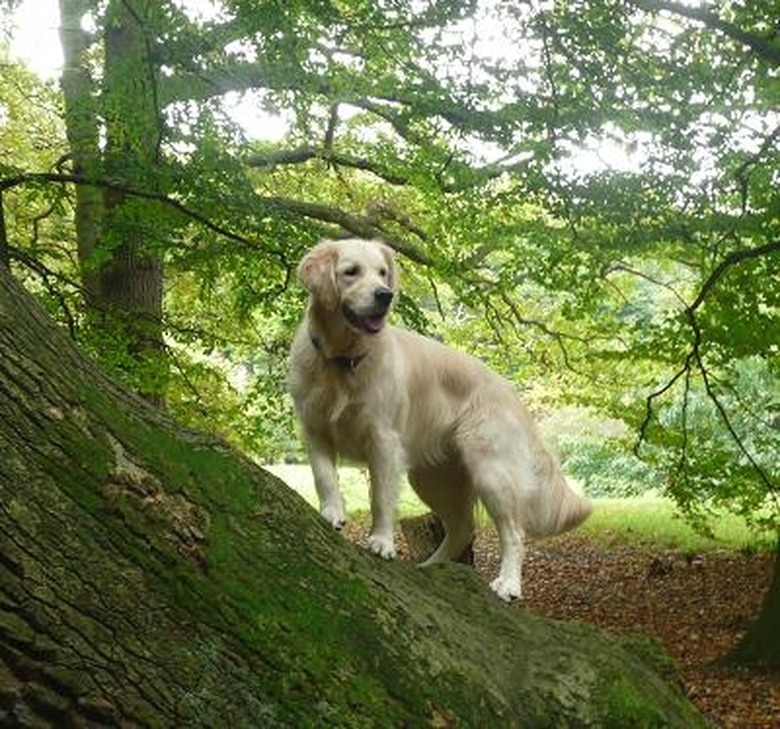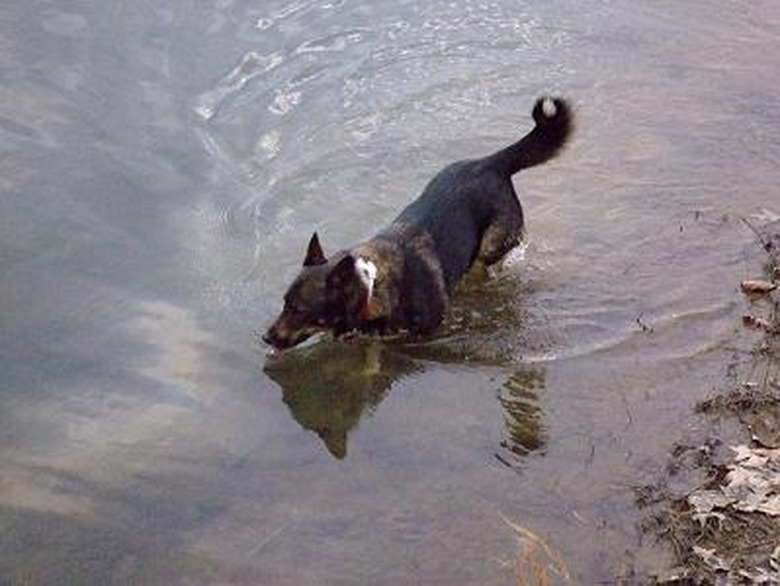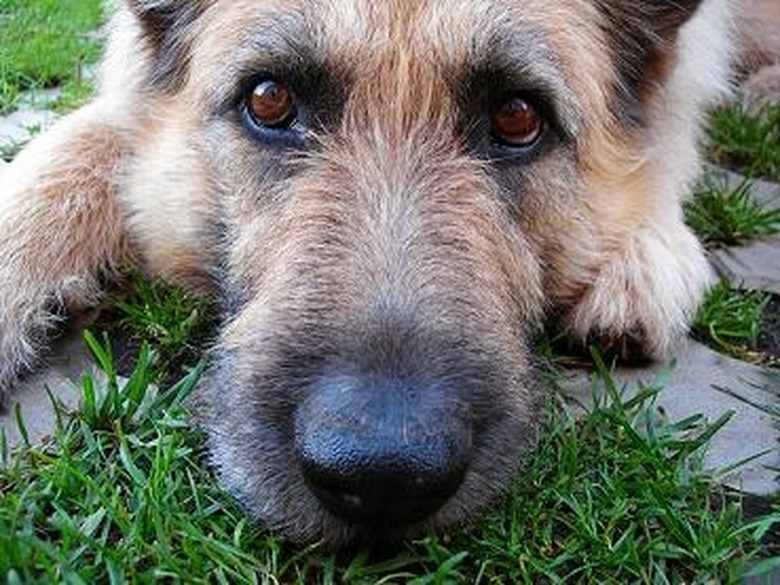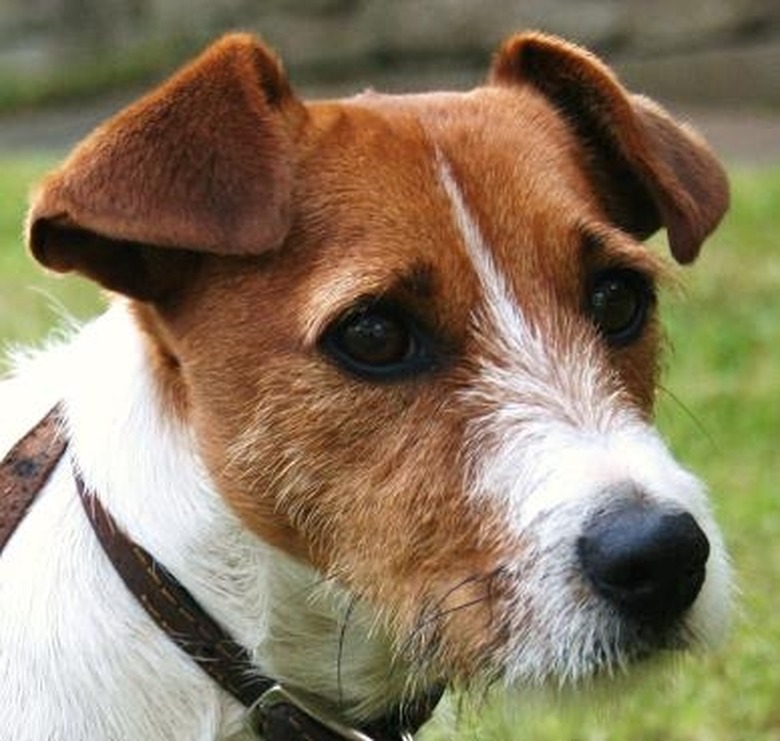Why Is My Dog's Poop Greenish?
Although the idea may sound ridiculous if you have never experienced it with your pet, dogs might have green stool. This can be a sign of a serious ailment, and if you notice an unusual green color or an unusually foul odor coming from your dog's stool, you should watch for other symptoms that signal a threat to the dog's health. Fever, vomiting, coughing, and general malaise are some additional symptoms to watch for. Noting them can help your veterinarian make a diagnosis.
Why is my dog's poop green?
Why is my dog's poop green?
There are several causes for green dog poop. Green or yellow dog poop happens when the intestinal tract is upset and your pet has more frequent bowel movements. This doesn't give enough time for the gallbladder's green pigment in the stool to be absorbed
- Giardia: One common cause of green diarrhea is a protozoan parasite called Giardia. It lives in open groundwater, such as creeks, ponds, and puddles. Dogs swallow the cyst stage of the Giardia parasite. The cyst initially has a hard shell to survive in the environment, but once in the intestinal tract, the cyst transforms into the feeding stage and attaches to the intestinal wall. In some cases, dogs can become chronic carriers of Giardia. Whether the animal exhibits symptoms, known as a flare-up, or not, they still have the parasites in their body.
- Other parasites: Giardia is not the only parasite that can cause green stool. There are many other types of intestinal parasites that can cause this stool color as well as gastrointestinal upset. Your veterinarian can examine your dog and the stool to come up with an accurate treatment plan.
- Dog food and allergies: Green dog poop may be due to food allergies. Your veterinarian can diagnose a food allergy and have you either switch dog food, use prescription dog food with special ingredients, or omit some allergens. Switching your dog's diet, especially abruptly, can also cause green stools. Introducing a new food to your dog, even dog-safe human foods, can cause green dog poop.
- Eating grass: Dogs often eat grass if they have an upset stomach or if they are feeling nauseous. However, if they eat a lot of grass, this can affect the color of their stool and actually turn it green.
- Pancreas issues: Green stool can be caused by pancreas issues, such as pancreatitis or exocrine pancreatic insufficiency. It can also be an indicator of gallbladder issues. Your veterinarian can assess your dog to determine if one of these conditions is the cause of green stool.
- Ingesting rat poison: If your dog's stool is bright green or neon blue, the dog may have eaten rat poison or a rodent that had eaten the poison. Consult your veterinarian immediately due to the fact that some common rodenticides can cause life-threatening issues with blood clotting. This is an emergency situation.
How Giardia is spread
How Giardia is spread
Giardia is common in rural areas where there are many mammals sharing space. White-tail deer are carriers, as are coyotes, wolves, rabbits, raccoons, and any mammals who share a groundwater source. Dogs who play in infected water or drink it are likely to become infected. The dog can pick up the parasite simply by walking across an area where the parasite has been shed. Then, when the dog licks their feet, they will become infected.
Giardia is not only found in rural areas, so don't let your guard down if you live in the suburbs or the city. It is possible for dogs to get Giardia from urban parks. A healthy dog with a good immune system may keep symptoms in check for a long time. The diarrhea may develop quickly if the dog's health is compromised by another illness, or it may flare up on its own.
What to do if your dog's poop is green
What to do if your dog's poop is green
If your dog's poop is green, consult with your veterinarian to figure out the cause and any conditions that need to be treated. The consistency of diarrhea from Giardia is often like pea soup. A flare-up is usually accompanied by abdominal pain, tenderness, and gas and will often progress to blood and mucous in the stool.
A single fecal sample may not show any cysts, and samples need to be taken for two to three days to get an accurate check. Your veterinarian will likely send a sample of your dog's stool to a laboratory for a special fecal test called an ELISA. This tests for Giardia by detecting specific proteins that the parasite possesses.
The medication given for Giardia is metronidazole, fenbendazole, or both. In some cases, a drug named Drontal Plus may be prescribed for Giardia.
Transfer to humans
Transfer to humans
Giardia can infect humans, with the risk being higher in developing countries. People get Giardia from touching surfaces that have been in contact with the feces of an infected animal, from ingesting groundwater that has been contaminated, or by eating uncooked food that has touched infected surfaces.
Recreational water is a common cause in the United States. Surprisingly, municipal water supplies can sometimes be contaminated with Giardia as well. If infected, humans are also treated with metronidazole. While one of the Giardia strains that dogs carry can spread to humans, they usually do not get infected with Giardia from dogs.
How to prevent green pooping
How to prevent green pooping
Cleanliness is the key to preventing Giardia infection and green pooping. Keep your dog away from areas that are prone to being infected and from dogs who are known carriers. Wash your hands often with warm soap and water to prevent ingesting the parasite yourself and from spreading it to other people or pets.
Pick up after your dog wherever they go. Designate one area of your yard for a doggie potty. It is extremely hard to decontaminate soil and grass. Bathe your dog's hindquarters, especially after every episode of diarrhea as well as on the last day of Giardiasis treatment.
What color should my dog's poop be?
What color should my dog's poop be?
Healthy dog stool is chocolate brown. Besides green stool being a concern, other colors can also be an indicator of a health issue. If you notice gray or greasy poop, it could mean pancreas or biliary issues, so seek veterinary attention. Yellow or orange poop (or some color in between) could be a result of a liver or biliary issue and also are health problems that need veterinary care. Black and tarry-looking poop can mean bleeding in the upper gastrointestinal tract. This is cause for concern and requires a visit to the veterinarian.
Consistency is also important when examining your dog's stool. Healthy poo is solid and fully formed but also squishy and not too hard. The dog poop should be log-shaped and in one piece. It should accurately represent the portions of food your dog is eating. Poop can reveal a dog's overall health. Watery poop could be an indicator of intestinal discomfort, and small, pellet-shaped poop could mean your dog has constipation and is dehydrated. Pellet-like poop can help you realize your dog needs to be drinking more water daily.
The bottom line
The bottom line
Dog owners who notice that their dog has green diarrhea should take them to the veterinarian to determine the cause. It may be from the parasite Giardia or another parasite, which affects pet health and requires treatment. It could also be indicative of an allergy to something your dog eats. Green diarrhea can potentially be due to a more serious condition, such as pancreatitis, exocrine pancreatic insufficiency, or gallbladder issues. Only your DVM can diagnose and treat the problem.



